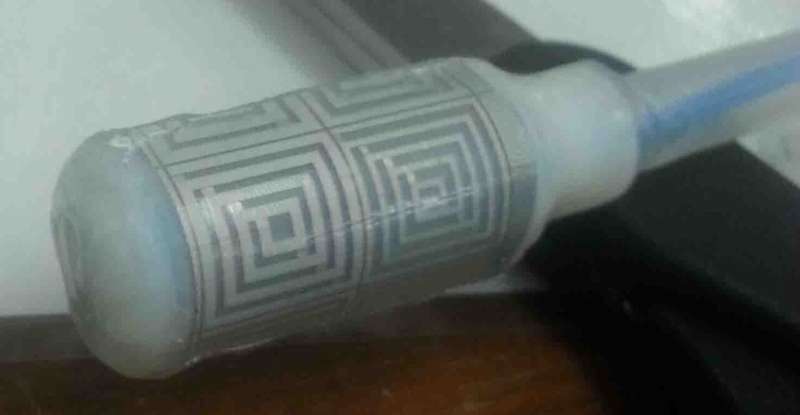This article has been reviewed according to Science X's editorial process and policies. Editors have highlighted the following attributes while ensuring the content's credibility:
fact-checked
peer-reviewed publication
trusted source
proofread
Swallowable sensors could pinpoint gut movement problems for patients

Scientists have developed an ingestible capsule dotted with sensors that can detect pressure in a patient's guts and detect points of failure.
The ingestible system will give colorectal medical teams an unprecedented understanding of the movement of a patient's digestive tract, or lack thereof. Instead of simply taking images of inside the guts, the system will sense whether it's contracting, how much pressure is exerted and exactly where it might be inactive.
The system has been tested in a synthetic gut and animals. A patent for the technology is pending.
The team from Heriot-Watt University and the University of Birmingham, with colleagues from the University of Edinburgh, have reported their system's success in the journal Device.
Tiny pressure sensors detect how the gut is moving
Professor Marc Desmulliez specializes in medical device technology at Heriot-Watt University and leads the project. Desmulliez said, "This could help transform how we detect gastrointestinal diseases and conditions.
"The traditional way to look at intestines or the gut is to have an endoscopy—it's a camera attached to a tube that will hopefully see any visible obstructions or problems.
"In Scotland, capsule endoscopies have become more common and have been transformative for patients: they swallow a little capsule, it travels along the guts and transmits images wirelessly back to a screen.
"It's much more pleasant than an endoscopy.
"We wanted to find a way to detect when the digestive tract isn't working, when it's not contracting and relaxing as it should when pushing waste along, and when there isn't a visible problem."
Desmulliez and team have spent five years developing their new system. The research also looked at the use of ultrasound to detect subcutaneous pathologies of the gut.
It is a swallowable capsule, 3 cm long and 1 cm in diameter, dotted with up to five very thin sensors, all the thickness of one or two human hairs.
Desmulliez said, "The pressure sensors will measure movement and activity right along the eight or nine meters of the gastrointestinal tract.
"They will identify regions where there's absolutely no movement of the gut, where the gut is functioning as expected or if there's something unexpected in terms of movement."
Technological and commercial readiness
Dr. Gerard Cummins, an assistant professor at the University of Birmingham, said, "The device is extremely resilient due to the number of sensors and their flexibility: it will continue to work even if it's damaged.
"We've also ensured that it won't scratch or damage the gut in any way by making the sensors very thin and covering them with a low-friction coating.
The team also focused on making the system sustainable and affordable.
Dr. Cummins said, "New medical technology is only useful if health care providers like the NHS can afford to provide it for patients."
"We engineered our prototype at the Scottish Microelectronic Centre at the University of Edinburgh. It uses semiconductor manufacturing processes, like those used to make microchips at a low cost.
"This allows the manufacture of these sensors at scale, making them very cost-effective. We can manufacture hundreds of them at the same time."
The team is setting up a spinout company to take the innovation forward and a patent is pending.
They estimate it will take at least another five years of clinical testing to bring the product to market.
More information: Vasileios Mitrakos et al, PressureCap: An endoscopic sensor capsule for real-time gastrointestinal pressure monitoring, Device (2024). DOI: 10.1016/j.device.2024.100325




















